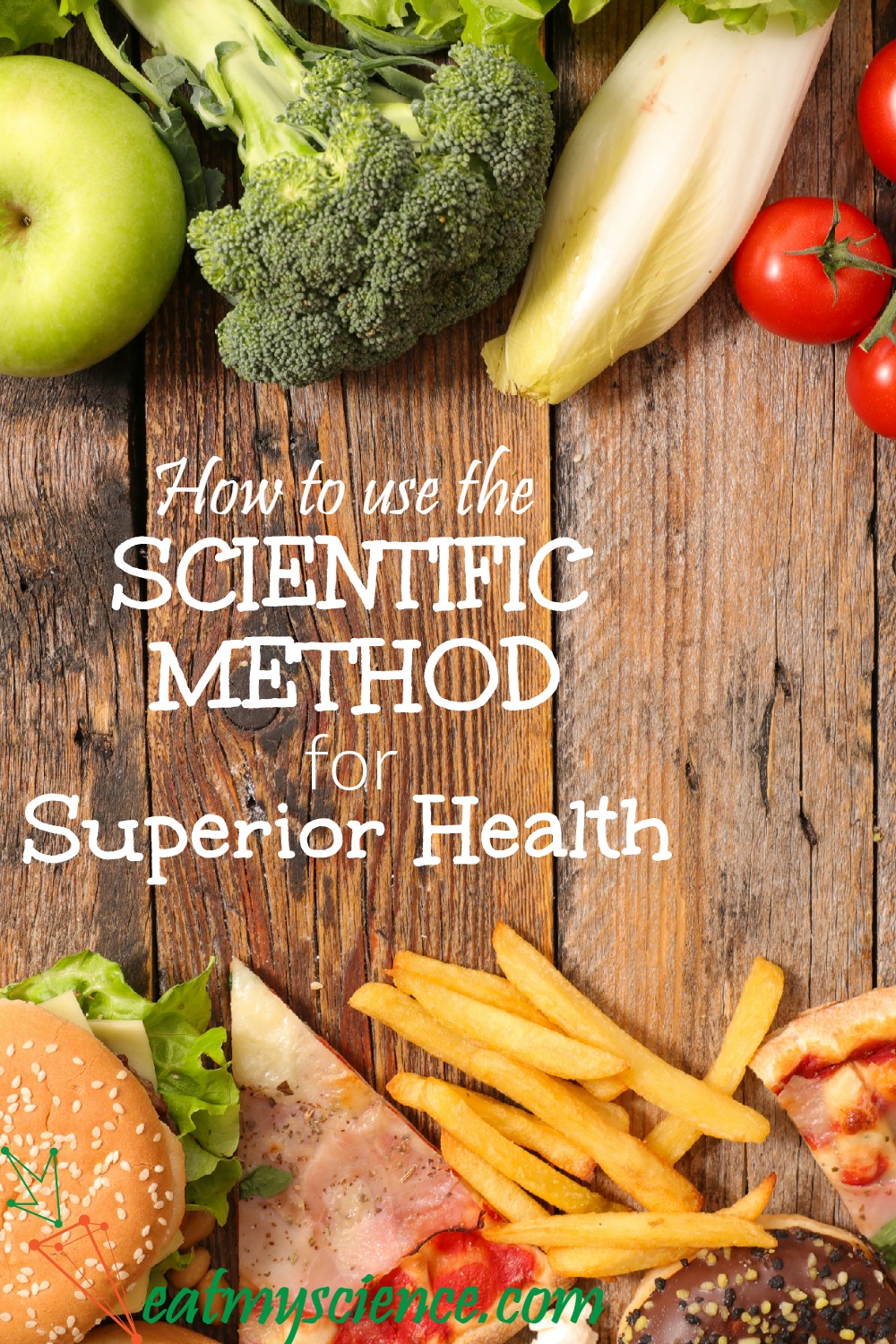You are a scientist. You can use the scientific method to experiment with what you eat and learn about your body every day.
It’s a sweltering day in 10,000 BC. Jane, Jerry, and Joe have a cozy cave down by the river. One day, Jane eats some berries and gets sick all over the cave. Jerry thinks the berries must be poisonous. Joe thinks the berries are fine and to prove it, he eats the berries. Joe dies.
Jerry and Jane stay away from the berries.
Observation and personal proof have long been the basis for our beliefs.
To put credibility in our proof of opinions, we came up with the scientific method. In a nutshell:
- First, you make an observation
Jane gets sick all over the cave.
- You research possible reasons why
Jane ate the berries from that bush over there!
- You come up with your opinion of why that observation happens
These berries must be poisonous.
- You come up with a plan to test that theory
Eat the berries and see if you get sick.
- You perform your test and record your findings
Joe eats the berries and dies.
- You use the results to convince people you are right
OK, nobody eat the berries. They’re clearly poisonous.
Sounds all fine and dandy, right? I mean the method of proof, not that Joe died.

Large nutritional and medical studies use this method to find trends in results. Never has there been a nutritional study where EVERYONE who ate the theoretical berries got sick or died. This proves one thing – every BODY is different. So why do we keep treating everyone the same?
If we’re going to get serious about taking charge of our nutritional health – and we are, my friend – then we need to start applying the scientific method to our own bodies. Only then will we know how to really eat for health.
For many of us, we are trying to reach a point of optimal health by either losing weight, feeling better, or both.
With the amount of information that is now at our fingertips, it seems impossible to know what we’re supposed to do. Do I eat more protein, less fat, fewer carbs? More fat, less carbs, more protein? Less protein, more carbs, less fat? Seriously, each of these diets come loaded with testimonials on how they saved someone’s life.
The key is finding the diet that will save YOUR life. Start using the scientific method for yourself, my fellow scientist!
- First, make an observation you’d like to change
I’m starving by lunchtime and eat everything I can find.
- Find possible reasons why
I eat a bagel with cream cheese and coffee for breakfast.
- Come up with your opinion of why that observation happens
My breakfast isn’t keeping me satisfied.
- Come up with a plan to test your theory
I’ll try eating oatmeal with berries and see if that helps.
- Perform your test and record your findings
I ate oatmeal and berries, but I hated it and only ate a little. I was starving at lunchtime.
- Now use the results to learn about your body.
I don’t like oatmeal. Next time I’ll try eggs with mushrooms.
Repeat, repeat, repeat, until you find something that works for you.
Getting to know your body will help you make decisions that are right for you. Personalized nutrition? You got it! You just have to pay attention to something you already do every day – eat.
Then quit eating the shit that hurts you.
My Papa has a long-standing joke: I went to the doctor the other day and said: “Doctor, it hurts when I do that.” You know what the doctor said? Don’t do that!
If what you’re eating or the diet you are following is making you miserable, then stop doing it. When you come across some crazy testimonial or someone persuading you to try some crazy diet, it’s OK to say “Your diet can bite me!”
In fact, that is my philosophy for getting to know my own body, and my personal food journal is called the Bite Me Food Journal. Find out how a food journal can help you get healthy, then get your free copy here! We just can’t follow someone else’s diet and expect great results. We have to find our own.
I’ve learned through personal observation that I can’t eat just a few M&M’s – I have to eat the whole bag. What have you learned about yourself through personal observation? Leave a comment below and show off your mad scientist skillz!
[…] by Michael Matthews’ philosophy. Stumped by his own fitness shortcomings, he turned to the real science of the body to learn the truth about being fit and healthy. This author is definitely someone I […]